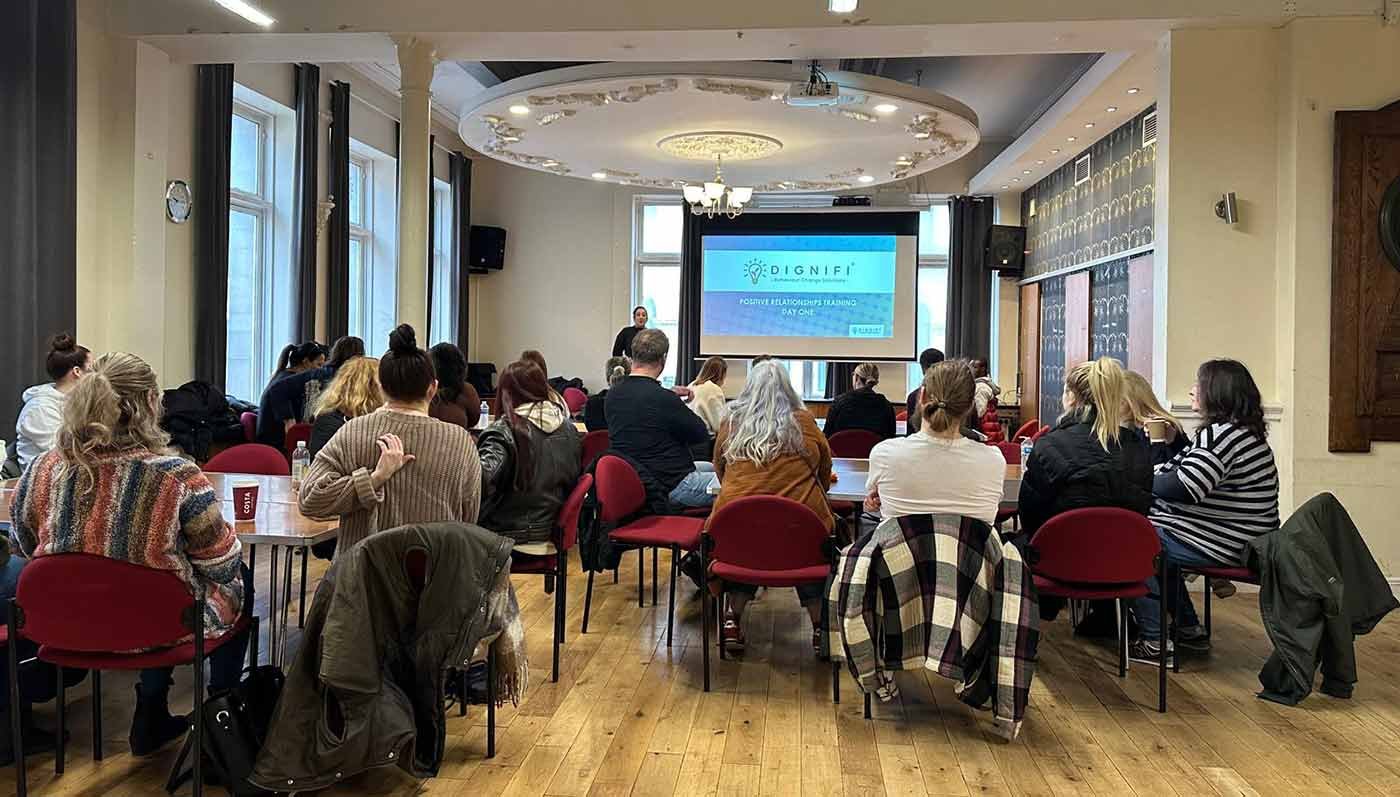Benefits of Trauma Informed Practice


The case for services adopting trauma-responsive ways of working.
There are a wide range of evidenced benefits for public/VCSE sector organisations developing trauma-responsive ways of working – both in terms of positively impacting staff and organisational culture, as well as improving engagement and outcomes for people who use services.
These include:
Improved employee mental health and well-being
Increased staff retention, productivity, and performance
Improved team working, staff supervision and safer working environments.
More effective working relationships with people using services.
Improved service user engagement and greater cost- effectiveness
Risk mitigation and the prevention of secondary trauma.
Improved safeguarding work
This in turn leads to:
Improved engagement with services as people feels psychologically safer
Honesty and transparency so people can access the right help and support
Better emotional regulation and a reduction in trauma symptoms
Better daily functioning which has multiple benefits from reduction in use of services, through to making a positive contribution to society.

Workforce development.
Our work across sectors is bringing up a range of themes that the workforce identifies as barriers to the development of trauma informed practice. By supporting the workforce to manage the issues they describe, we can ensure we reduce the risk of services re-traumatising people when they most need support.
Issues identified include:
Chronic strain: from low staffing levels and insufficiently resourced services.
Moral injury: the strain of not being able to deliver your job to your standards because of resource constraints.
Workplace trauma: where people are exposed to trauma at work and it impacts, as though the staff involved, resulting in them also developing trauma symptoms. This is often exacerbated by investigatory procedures and processes that seek to ‘blame’ or lay ‘culpability’ onto someone.
Secondary trauma: overwhelming emotional distress of witnessing/hearing or listening to someone describe experiences of trauma.
Vicarious trauma: the shift in the world view and self-perception that some professionals can suffer from after repeated exposure to trauma at work over long periods of time.

Benefits of working with us.
Our work with existing partner organisations has provided several lessons and opportunities, we share learning across sectors, and this provides fruitful learning for all our customers, stakeholders and partners. As an organisation, we believe our biggest strength is seeing our customers as the experts. Everything we do is rooted in lived experience and this includes the organisations that want to work with us. We adopt a model of doing things ‘with people’ and not ‘too them’. We recognise that change can bring about uncomfortable feelings, particularly with external partners. By recognising that each organisation and person we work with has the answers and working with them at every level to practically apply trauma informed principles helps to ensure what we do is lasting. For Dignifi, everything is grounded in empowering people and organisations to develop knowledge and awareness and then practically apply it. Our level of experience at every level of the organisation brings many benefits which continue to unfold in our work.
Some of these benefits include:
Bespoke innovative flexible models of working – Recognising that every organisation is different, we create workplans to meet your needs and are collaborative from the outset.
Authenticity and compassion. Our staff bring an authentic and compassionate perspective to their work whether in interventions, training or consultancy. This can in turn foster greater compassion and curiosity amongst policy makers, service providers and people who use services.
Expertise and insights: Lived experience often results in an expertise that is difficult to replicate through academic or professional training. Those who have navigated the system first-hand can provide invaluable insights around gaps, biases and inefficiencies and often have practical solutions to improve it. The Dignifi model incorporates this into everything we deliver with you.
Reduction of stigma and shame: Our model is focussed on reducing shame and stigma, we do this in different ways through our multiple strands of work. We want to change public perceptions and support people to understand they are not what happened to them.
Some of the additional benefits of working with us include:
Our relational focus: operating with integrity to build trust, communicate clearly, work flexibly and collaborate inclusively.
Personalising our approach to be most effective: tailoring projects to the strengths, needs and opportunities within organisations and/or the people we are supporting.
Direct experience of (and expertise in) frontline service delivery, operational management, service commissioning, whole system change and programme evaluation.
Desire for a long-term partnership whereby we all learn, share and promote the good practice from our partnership working for many years to come.
